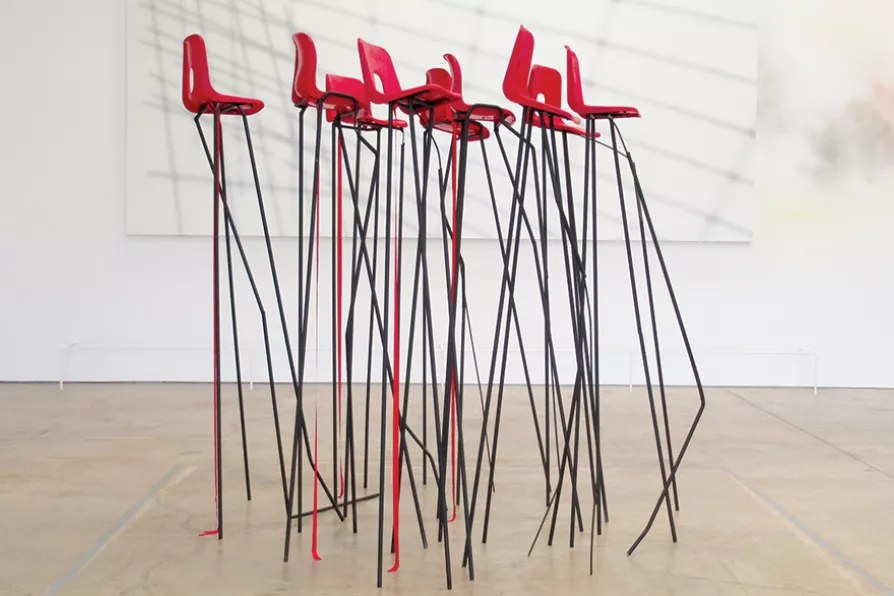GORDON PARSONS applauds a marvellous story of human ingenuity and youthful determination, well served by a large and talented company

 CLASS SELECTION: March of the Valedictorians by 2023 Turner Prize-winner Jesse Darling in Yorkshire Sculpture Park
[Alex Liivet/CC]
CLASS SELECTION: March of the Valedictorians by 2023 Turner Prize-winner Jesse Darling in Yorkshire Sculpture Park
[Alex Liivet/CC]
IF THERE’S been a buzzword of the past year and a half it’s possibly “existential.” Especially if it’s paired up with the word “threat.”
A cursory Google of recent news will see the phrase used in countless headlines, on just about any subject you care to name. Often it’s entirely justified – with the return of Trump to the White House and the cultural acceleration towards the far right just about everywhere else, there is an alarming – and growing – number of communities facing a very real threat to their continued existence.
But sometimes the argument is a little more nuanced, more subtle, although not necessarily less apocalyptic. And not all threats are political ones. For instance, the increased use of AI threatens to affect the ongoing viability of a number of careers, including those in the “creative industries.”

PAUL W FLEMING is unequivocal that Labour’s unpreparedness and resulting ambiguity on copyright in the creative industries has to be reined in with policies that will reverse the growing abuse by Big Tech AI












